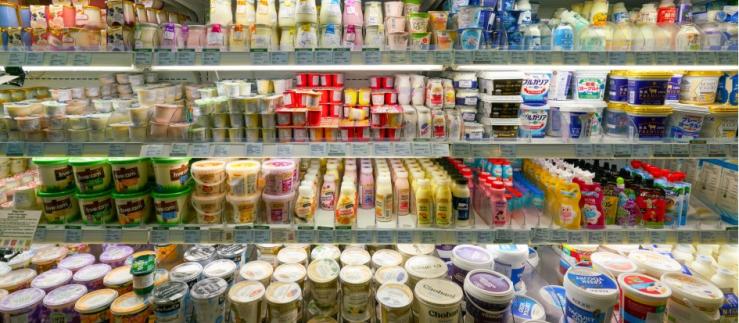Harald Blöchlinger, why is Bühler AG active in China? Where does the company see potential?
A group that is at home in the food and mobility industry cannot simply ignore China, given its more than 1.2 billion inhabitants. China and Asia, with their middle-class growth, are certainly one of Bühler’s largest growth markets. For this reason, Bühler decided early on for a strong local set-up, not only in market development, but also in the production of local solutions for the local market.
What services does Bühler’s after-sales service in China include?
Bühler offers a comprehensive, local customer service product portfolio. In addition to the basic services, with our service technicians and our spare parts hub in China, we also offer on-site support from our technologists. Our local engineering department designs and integrates customer-specific updates and upgrades of existing systems, electromechanically, as well as complete system controls. About 10 years ago, we started building small local workshops to check worn-out parts close to the customer and store critical spare parts. Bühler now operates 13 of these local service stations throughout the entire country. As a specialty of China, we also offer flour additives as one of our services. In addition, we have a dedicated company in which we produce OEM foodstuffs for our customers with our processes.
What expectations do Chinese customers have of after-sales service?
The expectations are slowly changing. Just five years ago, the expectation was Swiss machines didn’t need any maintenance. On the contrary: maintenance and repair calls should be free of charge, because the machine was already “so expensive.” Planned maintenance and the stocking of spare parts were not on our customers’ minds. Now, availability and system performance issues are being discussed, which naturally opens the door to us in terms of service.
How are you organized to be able to offer satisfactory after-sales service?
The country is big, and our competitors in the service industry are mostly locally organized. To stay competitive in these sectors, we have expanded and developed 13 local service stations throughout the entire country. These are the base for our service technicians, and have a workshop where we check worn-out parts. In addition to the large spare parts warehouse in our headquarters in Wuxi, our service stations have smaller warehouses with critical spare parts.
What challenges does after-sales service in China involve for Swiss SMEs?
Travel in China is relatively expensive in relation to labor costs. If the installed base of the machines is not large and widely dispersed throughout China, it is difficult to offer service at a competitive price. It is not always easy to find English-speaking service technicians either, which makes direct communication more difficult. Training and communication must therefore be managed directly in China; a local setup is necessary. If the headquarters are located in a dense industrial area such as Wuxi, the fluctuation rate can be relatively high. In contrast to Japan, brand attachment is not that important and changes are considered relatively quickly. The attractiveness of a Swiss brand as an employer is no greater than for other brands. There are many big names, global brands, that are well-known. These often have an easier time finding employers than lesser-known companies like Bühler that are active in niche markets. Working for European or American companies is generally more popular than for Taiwanese, Korean or Japanese ones.
Do you want to learn more about after-sales service in China? Meet Harald Blöchlinger, Head of Corporate Service and Sales at Bühler AG, and other experts at our event on after-sales service in China in Lausanne on September 25, 2018. Register now
About Harald Blöchlinger, Head of Corporate Service and Sales
After basic training as an electrician, the path of this Swiss citizen, born in 1971, led him to the machine industry, where he occupied various positions in various departments such as production and development. During this period, Harald Blöchlinger studied electrical engineering in night school at a university of applied sciences. He switched to customer service in 1997. After rounding off his profile with an evening courses leading to a degree in Business Administration, he moved to Bühler AG in 2008, where he has been responsible for overall management of customer service since 2016.
About Bühler AG
Billions of people come into contact with Bühler technologies every day to cover their basic nutritional and mobility needs. Bühler strives for innovation for a better world with a special focus on healthy, safe and sustainable solutions. Bühler has a significant share in the adequate and safe nutrition of the world’s population. Its solutions enable efficient and clean mobility.
In the food sector, Bühler is a leading provider of solutions for the processing of grain, rice, cacao, coffee and other raw materials. Furthermore, in the non-food sector, Bühler is the leading supplier of die casting and surface coating solutions for high-volume applications, such as in the optical, automobile and paint industries. In 2016, this global Swiss family company’s 10,500 staff members generated over 2.6 million Swiss francs in sales in over 140 countries.








